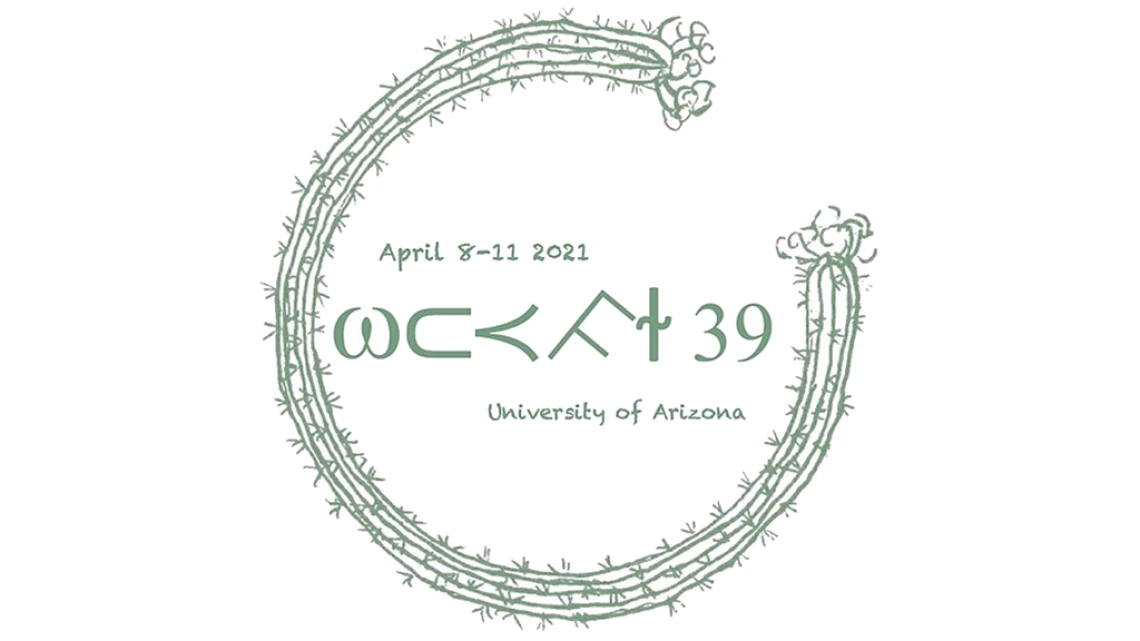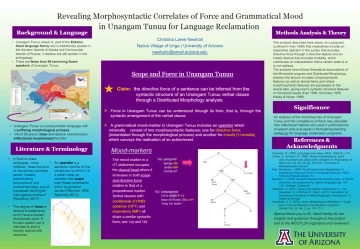Library data specialists amplify student research discoveries

The West Coast Conference on Formal Linguistics collaborated with the Libraries on a special project.
Last October, the Libraries’ Office of Digital Innovation & Stewardship launched the University of Arizona Research Data Repository, also known as ReDATA.
ReDATA, which is free to University of Arizona faculty, staff, designated campus colleagues, and enrolled undergraduate and graduate students, aims to reduce barriers and provide researchers and students more opportunities to publish and share their discoveries.
It’s working.
The ReDATA team recently collaborated with the Linguistics Department to make nearly 50 research conference presentations─many of them from students─publicly available.

The project began when Damian Yukio Romero Diaz approached the ReDATA team, which includes Chun Ly, Jonathan Ratliff, and Fernando Rios. In addition to working as a ReDATA graduate assistant at the time, Romero Diaz served on the organizing committee of the West Coast Conference on Formal Linguistics hosted by the Linguistics Department in April.
The team met with the organizing committee and committee chair, Heidi Harley, a linguistics professor. They discussed how they could work together to make the conference presentations open to the public.
ReDATA accepts research materials such as spreadsheets, binary files, software and scripts, audiovisual content, and presentations.
“Research conferences are special events that share the latest research discoveries with their fellow scholars,” said Romero Diaz. “This work isn’t published in peer-review journals and isn’t often made available for others to safely access.”
Depositing the oral and poster presentations from the virtual conference to make them publicly available involves assigning each presentation a citation digital object identifier (DOI). A DOI is a unique ID that corresponds to an electronic document or other material that can be cited in a bibliography.
The breadth of research covered by the conference was broad, and a number of researchers’ works involved people and tribal knowledge.
Before publishing the presentations, the ReDATA team had to get consent from participants, as well as approval by the university’s Human Subjects Protection Program and Native Peoples Technical Assistance Office.
“What makes this project special is that many of the presenters are students, so this is their first citable publication,” said Ly, who is the Libraries' research data systems integration specialist. “We play a critical role in sharing research from scholars at every level in their careers.”
Contact the ReDATA team at data-management@arizona.edu to schedule a consultation.
